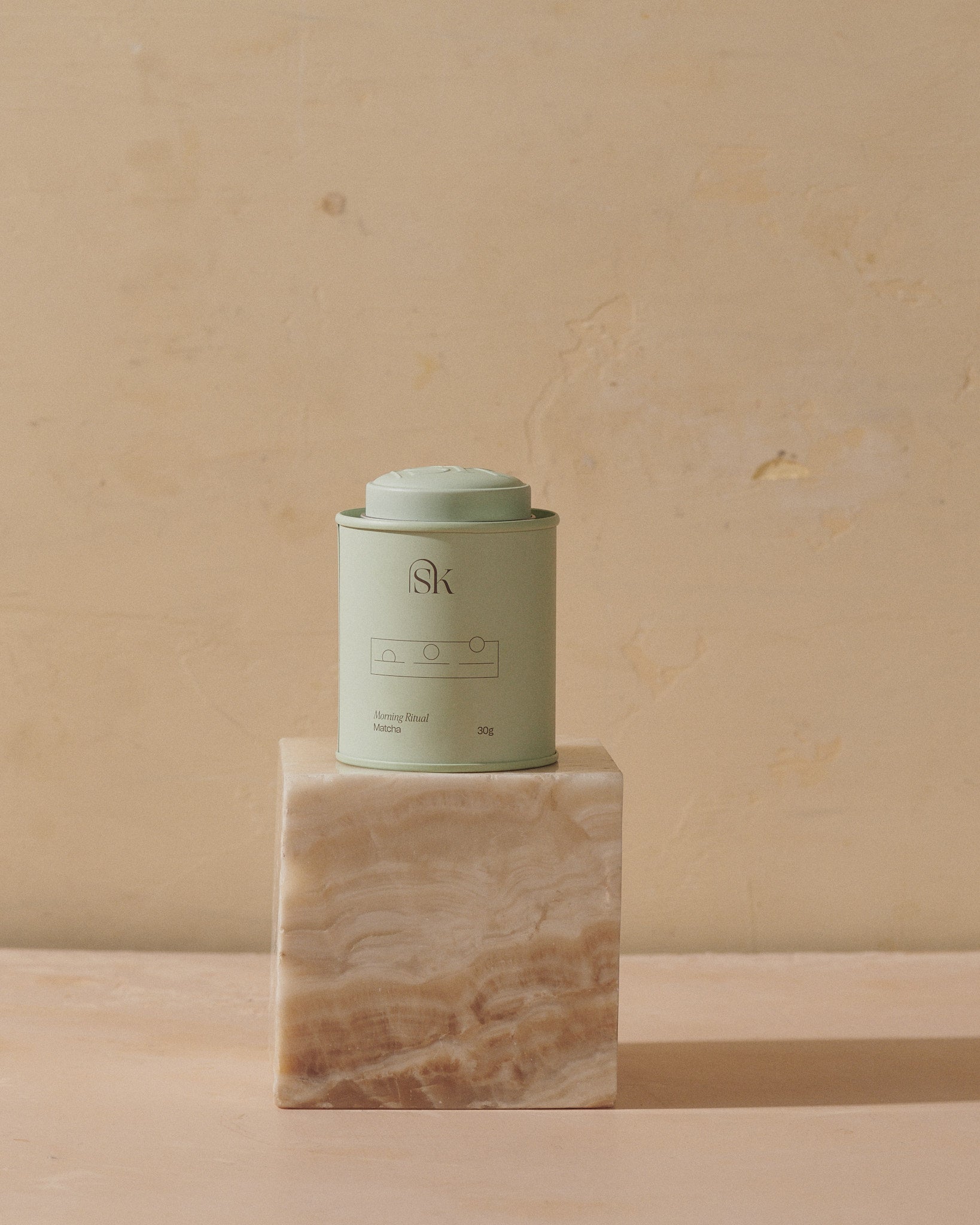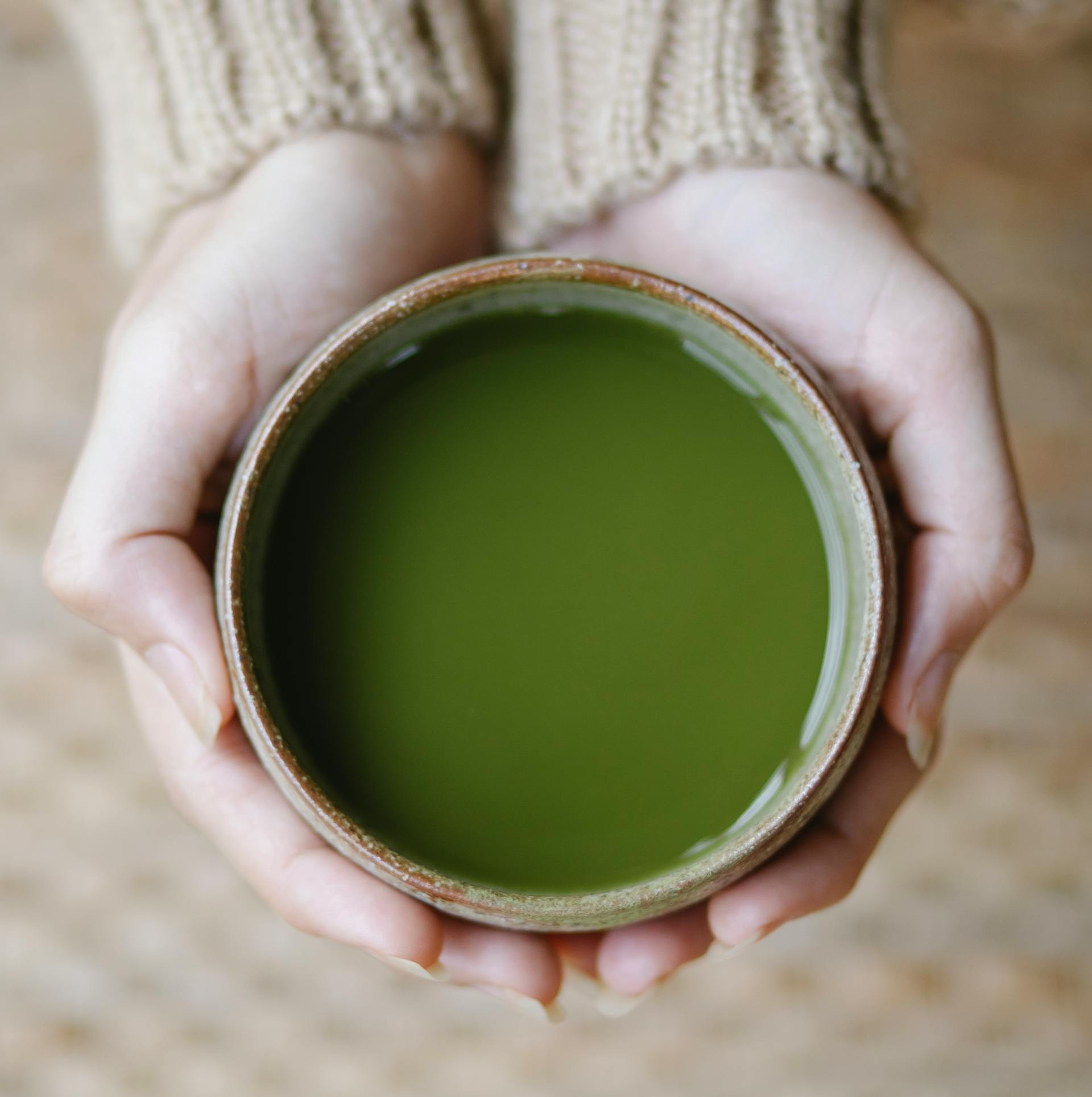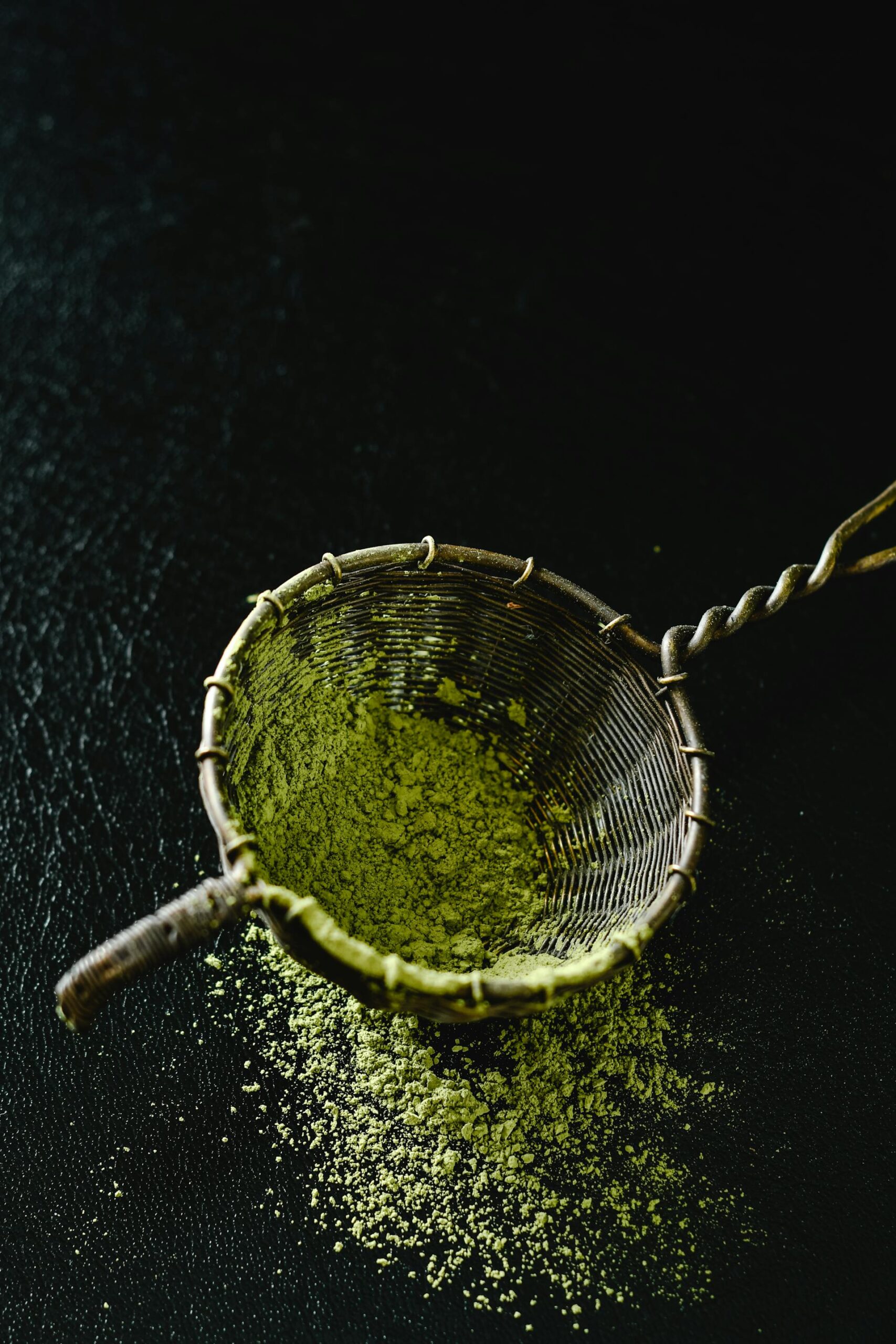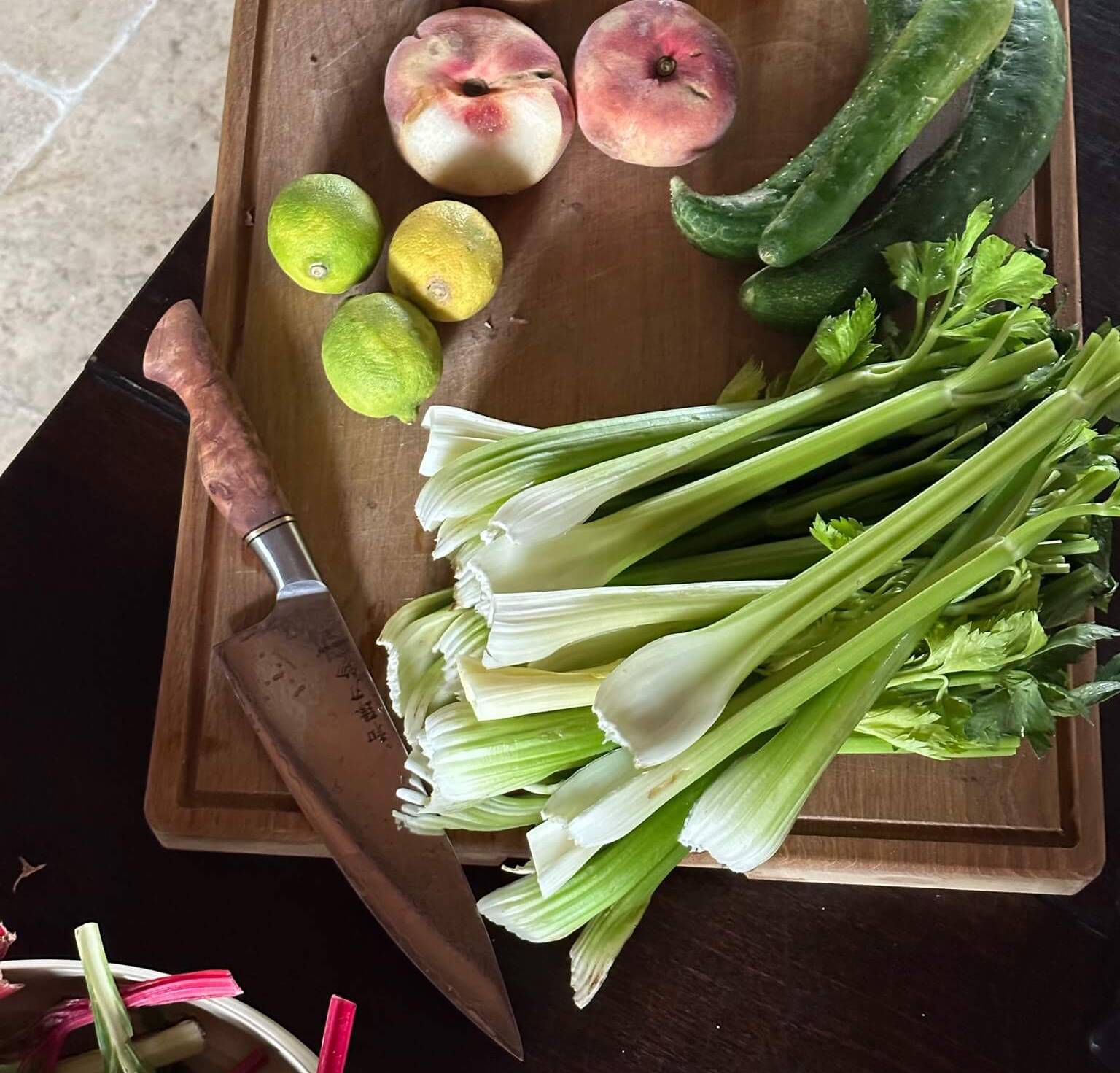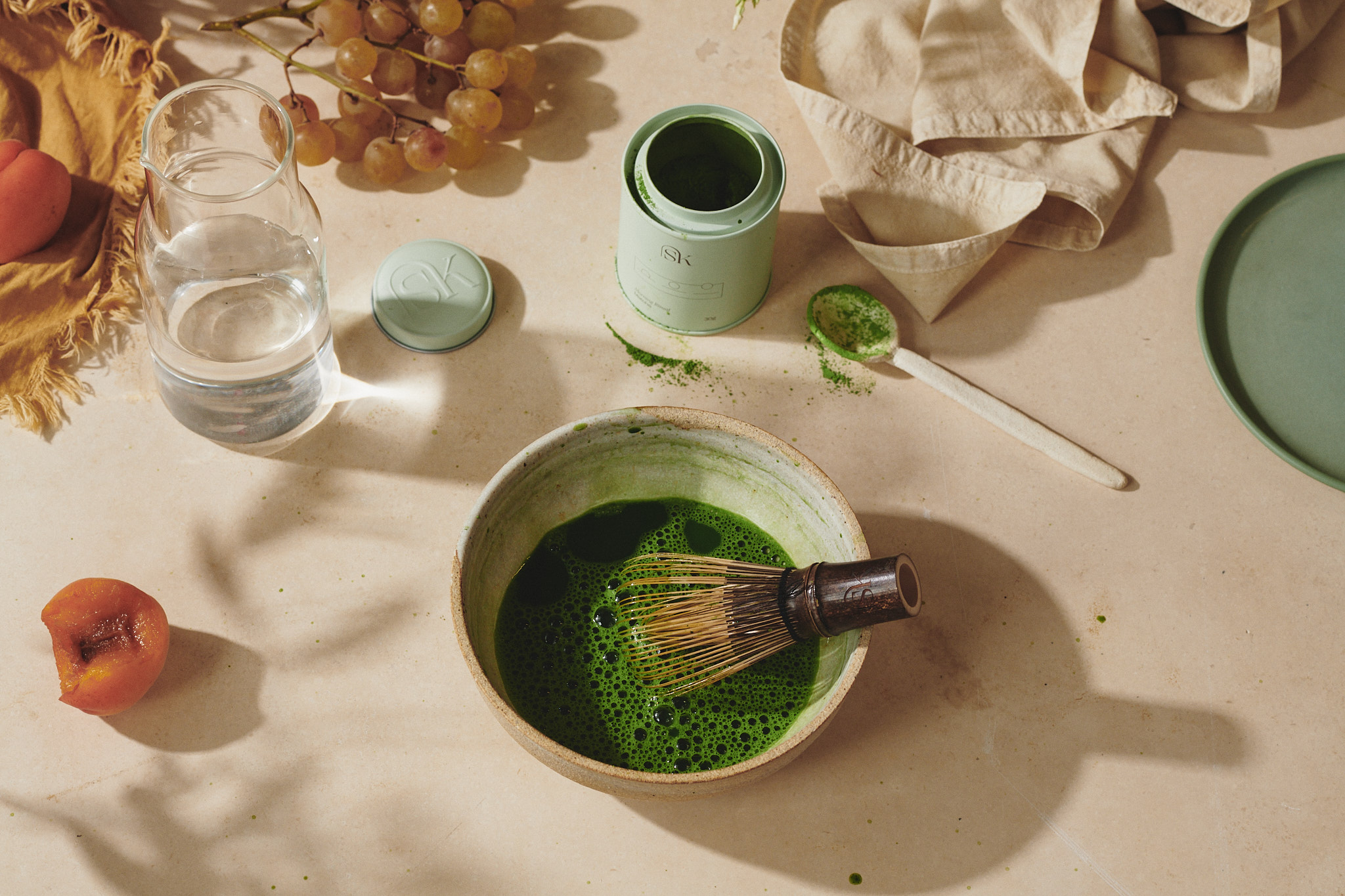
Organic Ceremonial Matcha Subscription: No Shortage Of Real Japanese Matcha Delivered To Your Door By Shayna’s Kitchen
Matcha is everywhere these days—you’re likely to come across it every time you scroll through TikTok, stroll the aisles at the grocery store, or hang out with friends at your favorite cafe or local pastry shop!
People are obsessed with matcha, but not with just any type. The qualities that have captivated the hearts of so many—such as its impeccable taste, vibrant green color, and remarkable nutritional profile—can only be found in the highest quality, ceremonial grade matcha.
Whether you’re a new to the matcha movement or a longtime matcha lover, keep reading for an exploration on the boom in matcha’s popularity, the global shortage that’s brewing, and how Shayna’s Kitchen is prepared to keep up with demand for our organic ceremonial matcha through the international shortage!
Why Ceremonial Matcha Is The Gold Standard—& Why It’s In Short Supply
Japanese matcha production nearly tripled between 2010 and 2023, but demand seems to be rising at an even faster rate. Industry experts believe that the surge in demand is due to the growing awareness of matcha’s holistic health benefits and heightened visibility on social media.
The shortage is hitting organic and higher-quality matcha the hardest—especially ceremonial matcha, the gold standard of matcha. It’s what holistic wellness enthusiasts, plant devotees, culinary artisans, and matcha purists really want.
Unlike mass-produced, ultra-processed Western food, ceremonial matcha is made the slow and traditional way—with little to no heat and time-honored techniques in small, artisanal batches.
No shortcuts, no compromises. The meticulous cultivation of scarce, highly-prized leaves and time-consuming, laborious production create an undeniable difference in taste, color, and nutrient density between ceremonial grade and lower-grade matcha.
Ceremonial Matcha Farming & Production: Every Step Behind Its Superior Quality, Taste, Color, & Health Benefits
Shade-Grown For More Chlorophyll & L-Theanine
Ceremonial matcha tea leaves come from camellia sinensis plants that are specifically grown under the shade—a method that naturally boosts the plant’s production of chlorophyll and L-theanine. The chlorophyll content supports detoxification and results in the 100% natural, glowing green color distinct to ceremonial matcha.
Matcha does contain caffeine, but it hits completely differently than coffee. My love of matcha began 12 years ago, when I realized that I needed to break up with coffee. It fed my anxiety, left me jittery, and drained me by midday. I was trying to lower my stress levels and heal my gut and coffee wasn’t helping at all.
When I switched to matcha, I couldn’t believe how calm, alert, and balanced I felt—it was really clear why drinking matcha has been part of Zen Buddhist meditation for centuries. It contains less caffeine than coffee, with more antioxidants and L-theanine, providing steady, grounded energy instead of cortisol spikes and crashes. L-theanine is an amino acid that encourages alpha brain wave activity, similar to what is achieved through meditation or peaceful walks, and is believed to help balance the effects of caffeine.
Young Leaves Handpicked At First Harvest For Silky Smooth Umami
Loved by chefs and health pros alike, the viral rise of matcha has taken the superfood far beyond its traditional roots. From matcha desserts to lattes, matcha is a star ingredient in fun, modern recipes and creative culinary innovations.
Selection during harvesting is key to achieving the delicately sweet umami that makes matcha a perfect, versatile ingredient. Once a year, only the youngest leaves from the very first spring harvest (“first flush”) are carefully handpicked for their tenderness and taste. Unlike older leaves that turn into stale, bitter, and chalky powder, young leaves result in a savory sweet, luxuriously smooth powder.
Steaming Locks In Superfood Health Benefits For Your Gut, Mind, & Immunity
The leaves are steamed immediately after harvest for less than 30 seconds, locking in nutrients, green goodness, and fragrant flavor.
Matcha is a nutritional powerhouse, rich in anti-inflammatory amino acids, polyphenols, antioxidants, fiber, minerals, and vitamins, supporting your gut, mind, and immunity. Each cup of ceremonial grade matcha tea contains 120 or more times the antioxidant content of steeped green tea. Epigallocatechin-3-gallate (EGCG), the most abundant catechin in green tea, is a powerful anti-inflammatory polyphenol known for its disease- and cancer-fighting properties. EGCG supports heart, brain, and skin health, while also helping to regulate weight, bad cholesterol (LDL), and blood sugar levels.
Destemming & Deveining For Beautiful, Bright Green Goodness
Every chef knows that we eat with our eyes, and the saying rings absolutely true as one of the reasons why social media loves matcha. But the stunning green shade isn’t just eye-catching—it’s a hallmark of high-quality matcha.
Lower-grade matcha uses older leaves, including several parts of the plant, resulting in a yellowish or dull green color and bitter taste. In contrast, making ceremonial matcha is a labor of love—stems, veins, and other fibrous parts are gently separated from the leaves, resulting in a delicious, naturally bright green powder.
Stone Grinding & Zen Rituals Rooted In Ancient Japanese Tradition
The leaves, now tencha, are slowly ground in a stone mill. The stone mill is key to producing an extremely fine and silky smooth matcha that retains its magic, as modern metal machinery would generate too much friction heat, reducing the potency of chlorophyll, amino acids, antioxidants, and vitamins—while also dulling the color, aroma, and flavor.
The ritual of preparing matcha with a traditional bamboo scoop (chashaku), whisk (chasen), and bowl (chawan) is where the quality of real ceremonial matcha shines. High-quality matcha is easy to dissolve and transforms into a silky froth with just water—no fuss, just pure tranquility and inner peace.
Matcha’s Popularity & Shortage Raises Quality Concerns
The matcha market is projected to reach $8.67 billion in 2031. But along with this exciting growth is a wave of low-quality matcha hitting the market. Poorly sourced varieties of matcha from companies simply looking to rush in and cash in are made with plants grown with harmful chemicals and mass processed, creating a dull, bitter, and chalky powder stripped of most of its nutritional benefits.
Concerns have arisen that some companies will try to pass off generic green tea powder, often made with dyes or fillers, at premium matcha prices.
Where Can I Find Authentic Japanese Ceremonial Matcha?
Despite all the latest buzz, matcha isn’t a modern wellness trend—it’s a premium tradition committed to the best nature has to offer.
Shayna’s Kitchen Certified Organic Elevated Morning Ritual Matcha is single-origin, shade-grown, stone-ground, and certified organic in both Japan and the United States. Free from pesticides and fillers, this is authentic Japanese ceremonial matcha in its purest form—sourced from a single farm in Uji, Kyoto, Japan, the birthplace of the world’s most exquisite ceremonial matcha.
As a holistic chef, nutritionist, and matcha lover of over a decade, crafting my morning cup is a staple in my daily ritual. As I start my day with meditation and journaling, matcha awakens my mind and body with a powerful boost of life-giving antioxidants and balanced, calm energy without any jitters or
crashes. It’s not just a drink; it’s an art and an intentional practice of self-care.
How Can I Get A Consistent, Sustainable Supply Of Fresh Matcha For My Daily Rituals?
Unlike most matcha that sits on store shelves fading over time, ours is kept refrigerated until the moment it ships, preserving its rich green hue, exquisite aromatic flavor, and superior nutritional potency. And every year, we go the extra mile with rigorous heavy metal and mold testing, ensuring the matcha you enjoy is as pure and clean as nature intended.
Worried About Matcha Shortages? Subscribe To Shayna’s Kitchen
With over 6 years in the matcha industry, Shayna’s Kitchen organic ceremonial matcha is made with deep care and a trusted, long-standing relationship with our farmer in Uji, Kyoto, Japan—ensuring no shortage of Shayna’s Kitchen matcha ever.
While trends come and go, our matcha philosophy stays rooted in unwavering commitment to quality, consistency, and sustainability.
Matcha Is A Ritual—And Like All Meaningful Rituals, It Thrives On Consistency.
When you commit to your ritual, you make your well-being a priority. With Shayna’s Kitchen matcha subscription, you’ll save 20% on eco-friendly refills of our fresh ceremonial matcha, delivered right to your door. Save your tin, reduce waste, and never worry about running out of matcha or losing momentum in your daily self-care routine.
Subscribe & Save 20% Today: Certified Organic Elevated Morning Ritual Matcha
Questions about matcha? Ask me @shaynateresetaylor on Instagram, TikTok, & YouTube
